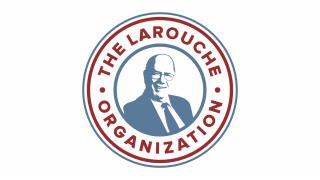Dec. 18—“The U.S. may think it’s winning in Ukraine but it cannot stop the inexorable shift to a new world order.” That was the theme of Russian Ambassador to the U.S. Anatoly Antonov’s interview with Newsweek published Dec. 17, in which Newsweek’s editors felt compelled to sprinkle with spin supporting the anti-Russia narrative.
“Washington seems to need to constantly assert itself through competition with Russia,” Antonov said. “It looks as if the ‘ghost’ of the Soviet Union is still haunting the corridors of power in the American capital, and the ‘Cold War’ has not ended at all.”
He added: "Many politicians here still think and act according to the laws of that historical period. They believe that restoration of Russia’s international prestige with Vladimir Putin’s accession to power in our country has become a ‘headache’ for Washington….
“With the conflict in Ukraine the United States is better placed to implement its idée fixe to weaken Russia,” Antonov said. “It is much easier to consolidate society within the United States and in the Western camp as a whole around the image of a ‘foreign enemy that undermines the values of the democratic world.’”
He continued: “At the same time, one can always shift the blame for its own problems and miscalculations onto the Russian Federation and use Russia to justify its unprecedented military spending. In addition, under the pretext of the developments in Ukraine, the administration is ruining mutually beneficial ties between Russia and Europe, making the latter fully dependent on Washington.”
Antonov asserted that it could be easy to view the U.S. as succeeding over Russia amid their rivalry. “At first glance, it may appear that Americans are ‘winning’ everywhere and at the cost of the lives of Ukrainian soldiers, [retaining] their own ‘leadership,’” Antonov said. “They hope in this way to maintain dominance in the world stage, which someone dared to challenge for the first time in a long time.”
“However,” he added. “Things are different.” Beyond the intensive feud between Moscow and Washington, Antonov said that “it is clear that we are at the beginning of a complex and long journey of building a multi-polar world,” one in which “the Russian Federation advocates that the interests of all participants should be taken into account in the future system of international relations, and that new centers of development in Asia, Africa, Latin America, and the Middle East could have an equal impact on global processes together with Russia and the United States.” And he argued that “our proposals find more and more understanding and support in various regions of the planet.”
While Russia’s conflict in Ukraine has garnered near-unanimous condemnation among the U.S. and its allies as well as a number of other countries, Moscow has persisted in developing ties with a variety of nations, much to the chagrin of the Western elites. And Russian influence continues to grow in some parts of the world, including those that Antonov mentioned.
With the U.S. and Russia still very much locked in geopolitical competition, Antonov said that “it is naïve to assume that in the course of the above-mentioned transformation, the rivalry between the Russian Federation and the United States will cease overnight.”
He argued that “Washington will certainly do everything possible to maintain its leading position and ‘silence’ our voice.”
“Still, the Russian-American standoff, if it is to continue, must be mutually respectful,” he asserted. “This is the foundation of both diplomatic practice and basic human communication.”
Even during some of the most dangerous episodes of the Cold War, to include the Cuban Missile Crisis that brought the world to the brink of nuclear war 60 years ago, the U.S. and Russia remained in regular communication. Recalling the memoirs of former longtime Soviet ambassador to the U.S. Anatoly Dobrynin, Antonov said that even during these heated periods, “the basic component of interstate interaction—a genuine desire to understand each other—was present.”
“Today, we do not see this kind of Washington’s attitude,” Antonov said. “On the contrary, Russophobia prevails over creativity and common sense so much that the United States is getting increasingly dragged into the Ukrainian conflict, losing the instinct of self-preservation.”
“The Administration completely ignores our concerns, which we communicate to our interlocutors via all channels available,” he said. “The practical steps of the White House, which is constantly ‘raising the stakes’ by sending more and more powerful weapons, points to only one thing: Washington is pushing for escalation.” However, he added that, “in this context, it is appropriate to remind the colleagues once again of the special responsibility of our countries for maintaining global security.”






